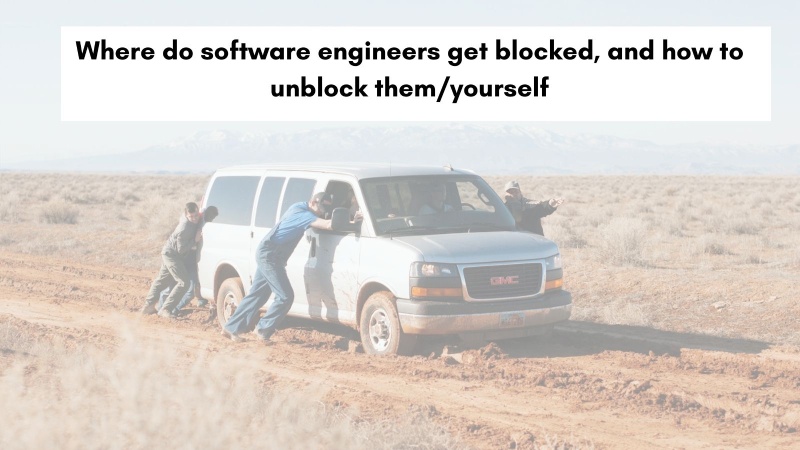One reason we can never rest is if we feel that we’re only as good as our next performance. But this is not true. We are as good as all our past performances. We can build on these. If...
 One reason we can never rest is if we feel that we’re only as good as our next performance. But this is not true. We are as good as all our past performances. We can build on these. If we rejoice in our previous “performances” our heart feels full – for me, it feels like I’ve already done a good day’s work and that the rest of the day is a fortunate bonus.
One reason we can never rest is if we feel that we’re only as good as our next performance. But this is not true. We are as good as all our past performances. We can build on these. If we rejoice in our previous “performances” our heart feels full – for me, it feels like I’ve already done a good day’s work and that the rest of the day is a fortunate bonus.
Carrying on from this article: One way to feel happier about yourself.
It is worth pointing out that whenever we rejoice in virtue, whether our own or others’, the good karma or merit multiplies! Je Tsongkhapa said:
It is taught by Buddha that rejoicing is the supreme virtue.
It’s like we’re doing that good deed all over again, but this time from the comfort of our couch  Which means that rejoicing is one really virtuous activity we can do at any age and in pretty much any circumstance, good or bad, and even when we are ill and/or bedbound. Venerable Geshe Kelsang says:
Which means that rejoicing is one really virtuous activity we can do at any age and in pretty much any circumstance, good or bad, and even when we are ill and/or bedbound. Venerable Geshe Kelsang says:
The practice of rejoicing does not require great exertion. Gungtang Tenpai Drolma said:
“If you want to practice great virtue even while you are relaxing, you should practice rejoicing.”
Also, rejoicing in our own good qualities and deeds gets us in the mood to rejoice in others’ good qualities and deeds.
Mom guilt
 When we are happy with ourself, we are happier about life, we are happier about other people. There is nothing selfish about wanting to be happy or feeling happy. I remember Venerable Geshe Kelsang saying:
When we are happy with ourself, we are happier about life, we are happier about other people. There is nothing selfish about wanting to be happy or feeling happy. I remember Venerable Geshe Kelsang saying:
Don’t be unhappy. There are enough unhappy people already.
There is also that famous Kadampa motto that I always try to keep close:
Always rely upon a happy mind alone.
One major happiness-blocker is guilt. One definition I found of guilt is:
A feeling of worry or unhappiness that you have because you have done something wrong, such as causing harm to another person.
We don’t even have to feel we’ve done something wrong, per se – we can just feel worried or unhappy because we haven’t done enough to help the people we are supposed to be helping. Ask any mother. Mom guilt is described as an invisible weight, a nagging guilt that never goes away. It’s a term given to the feelings of guilt and inadequacy some people feel when they believe they are not living up to their own or others’ expectations in their role as a parent. It’s like an internal dialogue that tells us we are failing as a caregiver. It’s not just moms of course who succumb. It’s dads, and children with elderly parents (me), and anyone really who has people depending on them for whatever reason.
Under the influence of this guilt, it doesn’t matter what others say or how much they appreciate you; the internal pressure remains. There is that incessant voice in the back of your head saying, “You’re doing it wrong! You’re not doing enough. You’re not the parent, the partner, the professional, the child you should be!”
The guilt is not usually based on anything real; there is very little reason for it. Mothers, for example, have typically done nothing wrong – in fact are often pretty darned saintly – and have nothing to make amends for or to repair. Nevertheless, the guilt persists, stemming from a constant inner and outer pressure “to be a good mom.”
 I was talking to a mother last week who was very worried, tormented in fact, by the depression and self-destructive urges of her 15-year-old son. A son who refuses to listen to a word she or his dad says and seems hell bent on getting more miserable and angry with each passing day. They have tried everything. They feel like terrible, inadequate parents. They would do anything just to get a smile out of him.
I was talking to a mother last week who was very worried, tormented in fact, by the depression and self-destructive urges of her 15-year-old son. A son who refuses to listen to a word she or his dad says and seems hell bent on getting more miserable and angry with each passing day. They have tried everything. They feel like terrible, inadequate parents. They would do anything just to get a smile out of him.
This week however she was looking more peaceful; and she told me it’s because she accepts this as the new normal (for now), that he is on his own path and there is only so much she can do. That although they must both have created some negative karma (“he came out with all this baggage”), she can accept this and work with it without feeling that everything is her fault. She knows she is doing her best, that she is a good mother, not a bad one.
Since then, interestingly, I have conversed with at least four other moms and dads with girls and boys around that age, also at their wits’ ends – it’s like there’s an epidemic affecting 15-year-olds or something.
As mentioned, it is not just moms (and dads), clearly, who feel they are not coping with the daily juggle, who have Mom guilt. Anyone who feels responsible for anyone else, even an animal, can develop these nagging feelings from thinking about all of the things we should be doing and are not getting around to. No matter our gender or role ascribed to us, if we’re feeling guilty for not being everyone’s everything at every moment of every day, we’ve got the mom guilt. This undermines our joy and means we can never rest.
Nothing we ever do will be enough to assuage the black hole of guilty feelings – so instead we have to learn to let these go. And rejoicing in our own good qualities and what we have done already is the way to do this, providing the perfect antidote.
One bit of advice for mothers is to contemplate all you have done for your kid already – including giving them an entire human body  Try out the kindness of mothers meditation on yourself. Your kid is their own person with their own path and their own karma; but you have already helped them existentially and hugely more than anyone else.
Try out the kindness of mothers meditation on yourself. Your kid is their own person with their own path and their own karma; but you have already helped them existentially and hugely more than anyone else.
Of course we cannot always help people as much as we want – we can’t always win. Some (many!) people may not want or appreciate out help. Some (many!) things don’t work out as we hoped. This is not a failure. It does not make us a failure. It is better not to focus on it as a failure. Karma is complicated.
Never enough time
In samsara, there will never be enough hours in the day to do everything we feel we should be doing, if that is our mindset. The math doesn’t compute. There are infinite living beings, all of whom need stuff done. We play a number of roles and each of these comes with certain expectations and responsibilities both in our own eyes and in the eyes of  others – many of which compete with each other.
others – many of which compete with each other.
Plus problems are literally endless in samsara – that’s pretty much its definition. Buddha said that being in samsara is like living in a thorn bush, naked to boot – no matter how hard we try to solve problems or shift into comfort, there’s always another thorn ready to pierce our flesh
Therefore, something has to give. Perhaps that could be our expectations that samsara can ever be tidied up satisfactorily. We need a healthy dose of renunciation and bodhichitta. And, in the immediate term, before we have spontaneous renunciation and bodhichitta, to overcome these feelings of being overwhelmed we can prioritize rejoicing.
Renunciation helps us keep samsara in perspective and not feel exhausted at the very prospect of trying to fix things. As someone said on Facebook the other day:
When I hit exhaustion, I find the real solution is for me to then move into renunciation. Am I trying to fix this poisonous flower garden? Am I trying to make it work? Does it keep not working?!
One more article on this subject coming up soon … meantime your comments are warmly invited! Guilt is a miserable delusion and I and other readers welcome your insights on how you get rid of it (especially if you’re a Mom).













